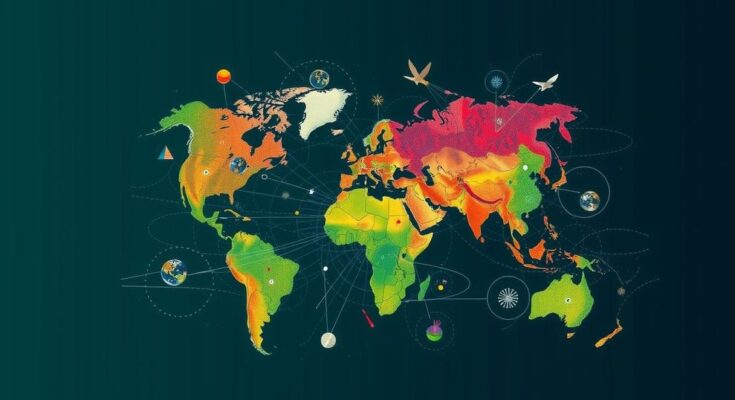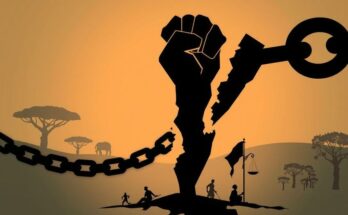The Cop29 climate conference exposed the alarming connection between oil exploitation, climate change, and human rights violations. Azerbaijan’s president labeled fossil fuels a ‘gift of god,’ while a Freedom House report detailed brutal reprisals against local populations. Despite pledges to combat climate change, many countries continue to expand fossil fuel production, worsening human rights abuses. New Zealand faces a pivotal moment to advocate for sustainability and acknowledge the intertwined crises of climate and human rights, inspired by recent laws in the EU that tie climate inaction to human rights violations.
At the heart of the Cop29 climate conference, Azerbaijan’s president, Ilham Aliyev, boldly proclaimed oil and gas as a “gift of god,” a statement that echoes in gleaming skyscrapers but rings hollow for countless lives disrupted by these very resources. As climate and human rights crises collide, the consequences of our fossil fuel cravings become alarmingly clear. Nations pledged to combat climate change yet remain entwined with the fossil fuel industry, further entrenching human rights abuses. Azerbaijan’s deep-rooted issues, including the ethnic cleansing of Armenians from Nagorno Karabakh and systematic suppression of journalism and activism, exemplify how oil wealth can perpetuate oppression. The Freedom House report, released alongside the conference, revealed harrowing human rights violations masked by Azerbaijan’s fossil fuel prosperity. While countries such as New Zealand seek to explore new petroleum ventures, the global community continues to overlook the dire cost. Recent research warns that expanding oil fields worldwide could emit CO2 levels rivaling major global polluters like the US and China, leading us closer to catastrophic climate outcomes. Scientists indicate that this year’s climate patterns are the hottest on record, with relentless natural disasters reshaping landscapes and lives. From fierce storms to uninsurable homes, New Zealand is not exempt from these catastrophic changes. Furthermore, climate change has become a breeding ground for new diseases, exposing populations to viruses previously unseen in their ecosystems. In stark contrast, the UK has made significant strides toward sustainability, including the closure of coal plants and the cessation of new oil and gas licenses under its new leadership. New Zealand, represented by its climate change minister Simon Watts at Cop29, stands at a crossroads. It has the potential to support Pacific nations facing existential threats from rising sea levels while reducing its own per capita emissions. A holistic approach involving innovative farming techniques and climate-responsive industries could ensure a healthier future for both New Zealanders and the global community. Enhanced public transportation, native reforestation, and circular economy initiatives could significantly lower emissions while promoting biodiversity and human well-being. The fight against climate deterioration must go hand in hand with safeguarding human rights. With the European Court of Human Rights setting a precedent by declaring that climate inaction violates fundamental rights, the bond between climate and human dignity resounds louder than ever. As New Zealand stands as a moral beacon in the international community, its actions must reflect the intrinsic link between climate resilience and the preservation of human rights.
The intertwining of climate change and human rights is increasingly evident as global resources are exploited for fossil fuels. The recent Cop29 climate conference in Azerbaijan brought this issue to the forefront, revealing how oil and gas production can encourage egregious human rights violations. The topic became particularly relevant as nations continue to pledge action on climate change while also ramping up fossil fuel exploration, highlighting a troubling contradiction in policy and practice. This complexity is exemplified through Azerbaijan’s systemic human rights abuses, such as ethnic cleansing and repression, linked directly to its oil wealth. The global community, particularly countries like New Zealand, must navigate these waters mindfully as they balance economic interests with moral obligations to uphold human rights in the context of climate action.
In summary, the delicate dance between climate change and human rights demands urgent attention. As the world grapples with record-breaking climate events, the stories of those affected by oil and gas exploitation must be acknowledged and acted upon. New Zealand has a crucial opportunity to exemplify leadership in this regard by committing to sustainable practices and respecting human rights in the face of climate challenges. The moral compass pointing toward a future where ecology and human dignity coexist must guide all nations toward a sustainable and equitable tomorrow.
Original Source: thespinoff.co.nz



